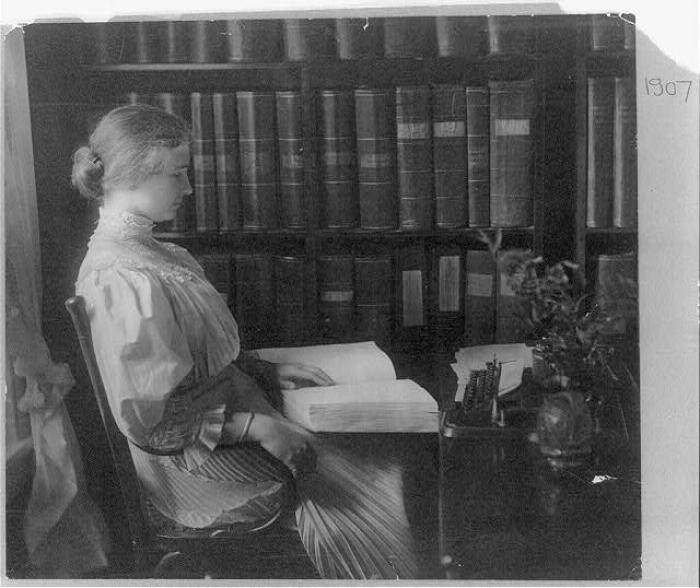
Helen Keller
In 1933, Nazi students at more than 30 German universities pillaged libraries in search of books they considered to be "un-German." Among the literary and political writings they threw into the flames were the works of Helen Keller.
Excerpt
I am a socialist because I believe that socialism will solve the misery of the world—give work to the man who is hungry and idle and at least give to little children the right to be born free.
—"Brutal Treatment of the Unemployed," Helen Keller, Sacramento Star newspaper, 1921
Which of Helen Keller's Works were Burned?
How I Became a Socialist (Wie ich Sozialistin wurde)
Who was Helen Keller?
Helen Keller (1880–1968) was born in Tuscumbia, a small rural town in northwest Alabama. When she was 19 months old, Keller became ill with what modern-day doctors believe was either scarlet fever or meningitis. She was left deaf and blind. With the help of her teacher and lifelong companion, Anne Sullivan, she learned how to read and communicate.
In the years after graduating from Radcliffe College, Helen Keller became a socialist and suffragist. In her writings she championed the disabled, pacifism, improved conditions for industrial workers, and women's voting rights.
Keller donated her German royalties to a fund for German war-blind veterans. Nonetheless, her socialist and anti-war writing was burned. Keller's open letter of protest, published in the New York Times and elsewhere, warned the German people that the burning of books could not eradicate ideas.
Critical Thinking Questions
- If Jews were the principal target during the Holocaust, why were books written by non-Jewish authors burned?
- How did the German public react to the book burnings? What were some of the reactions outside of Germany?
- Why do oppressive regimes promote or support censorship and book burning? How might this be a warning sign of mass atrocity?

